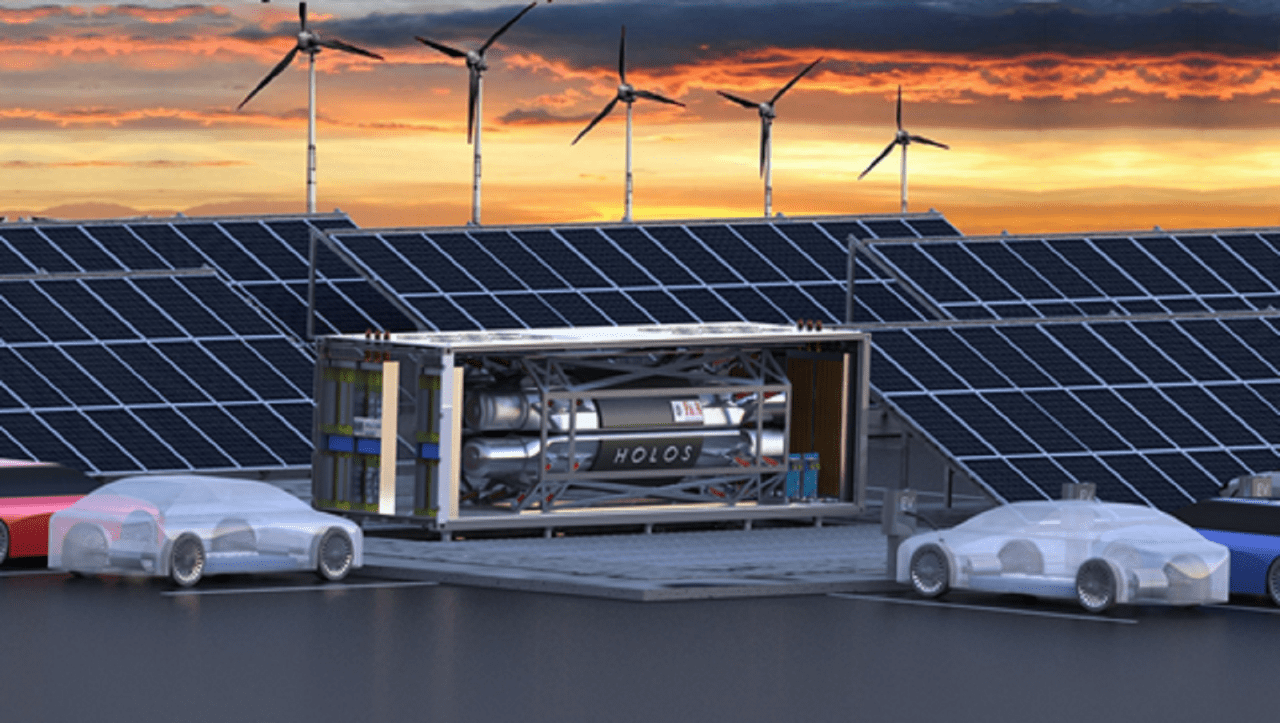The POWER Interview: Argonne Lab Advancing Nuclear Energy
The post The POWER Interview: Argonne Lab Advancing Nuclear Energy appeared first on POWER Magazine.

Argonne National Laboratory is at the forefront of research into the design of portable nuclear reactors, working to make the technology viable for use at places such as military bases and remote communities.
Micro-reactor concepts are being developed that could fit power generation into a small area, such as in the back of a truck, or even in a rocket headed to space. The U.S. Dept. of Energy (DOE) and others are touting small reactors as a way to provide reliable, zero-carbon power, or to support resiliency of the power grid.
Researchers and engineers at DOE's Argonne facility in Lemont, Illinois, are working to bring micro-reactors from conception to reality. They're partnering with private industry and federal government regulators, looking at designs that could produce a few kilowatts of electricity, to as much as 20 MW. Part of the thinking behind micro-reactors is that their small size means they can be manufactured at a reduced cost compared to other nuclear technology, and that they could be rapidly reproduced due thanks to a simple design. And while the design may be simple, micro-reactors are being designed to operate safely for years, even decades, and they're also self-controllable, eliminating the need for constant human oversight.
 Andrew Breshears
Andrew BreshearsAndrew Breshears is among the Argonne researchers working in support of micro-reactors. Breshears, a principal nuclear chemist, has said he and his colleagues are creating a framework to ensure confidence in how these reactors are being built, sited and constructed."
Breshears recently took time to answer questions about advanced reactor technology and the work being done at Argonne.
POWER: It seems that advanced reactors and micro-reactors are gaining a lot of momentum. What is Argonne doing to advance these efforts?
Breshears: Argonne National Laboratory has been in a particularly advantageous position to assist with advanced nuclear energy. Argonne has been doing a lot to advance the future of nuclear power. Argonne is home to the Mechanisms Engineering Test Loop facility that tests components that will be subject to sodium fast-reactor environments. We also are working toward better nuclear fuels, a nuclear fuel cycle with fewer impacts to the environment and communities, and applying artificial intelligence to nuclear safety.
POWER: You mention safety and security of reactors and it seems that this has always been on the public's mind when it comes to nuclear power. Can you talk more about how Argonne is working in the interest of public health and confidence when it comes to reactor commercialization?
Breshears: Yes, one of my projects at Argonne is focused on domestic safeguards of micro-reactors. The idea is to create a decision-tree type product that will help developers, vendors, and utilities understand what is expected for safeguarding advanced nuclear power plants in the U.S. The project is ensuring that advantages of micro-reactors be considered and documented properly for the Nuclear Regulatory Commission (NRC) and, of course, to protect the public. Areas and situations that might need further support or mitigation will be made aware to developers, vendors, and utilities so there isn't any confusion or lack of knowledge on the issue. Our group's bottom line is to offer the science and expertise to make advanced reactors safe, secure, and sustainable.
 Micro-reactor concepts like this one from HolosGen, a modular nuclear reactor company, could be used in a variety of settings to provide emissions-free power. Courtesy: HolosGen
Micro-reactor concepts like this one from HolosGen, a modular nuclear reactor company, could be used in a variety of settings to provide emissions-free power. Courtesy: HolosGen POWER: What's next for that project?
Breshears: Right now, we are working on the first iteration of the final product. Argonne has good relationships with advanced reactor designers that have partnerships through the DOE's Office of Nuclear Energy Advanced Reactor Demonstration Program (ARDP). We are currently working with micro-reactor vendors in the ARDP to apply the product to their reactor concept. We believe this will greatly speed up the domestic safeguards discussions of the licensing process, ultimately helping get that vendor to site in the U.S. We believe that other vendors and concepts will appreciate our work and also reach out to begin the same process for them.
Stretching beyond the near-term, our group is confident and excited to expand outside microreactors to other advanced reactor concepts. We are looking at possibly adapting this decision-tree product to other reactor types. In doing so, we give communities multiple safe and secure reactor options to meet their energy and environmental needs and visions. This could extend from high energy density reactor concepts, to load-following concepts that match with other renewables, to special waste burner" reactors that would practically eliminate the long-lived consequences of used nuclear fuel from being our children's or grandchildren's problem.
POWER: Can you go into a little more detail? Specifically, why are domestic safeguards so important to the domestic industry?
Breshears: That is a very important question, so let me give you an analogy. Your heart is central to your body, right? And in more ways than one. In the same way, the reactor core is the heart of turning material into heat that is then converted into electrical energy. In the same analogy, you can almost think of the uranium and other fissile material as the blood of the reactor. However, you can't lose blood. In fact, your body is extremely good at making sure you don't lose blood. One aspect of domestic safeguards is called material control and accountancy, this makes sure a reactor facility doesn't lose the material the reactor needs to produce energy. The difference of course is that your body has evolved to keep its blood, and reactors don't evolve, at least not in the biological sense. That's where NRC's material control and accountancy requirements come in. We all have an interest to ensure that the lifeblood of the reactor, which produces energy for our homes, businesses, airports, hospitals, or you name it, can continue to work.
POWER: Argonne seems to be doing a lot of work with DOE, NRC, and industry, but what about the community as a stakeholder in advanced nuclear?
Breshears: Thank you for asking that! The community is a huge stakeholder in nuclear science. What we as a national laboratory do and how it affects the community is centric to our mission. With that said, teaching the community about our work and about science is a huge motivator for the laboratory, and especially myself. We get a lot of opportunities to go out to schools from kindergarten through college and talk about our work and the impact Argonne has on them and their families.
One of my favorite visits was to a high school in which my talk was about advanced nuclear reactor technologies. I spoke to a new group of students every hour for 10 hours. I didn't even get time for lunch. However, what really kept me going was the enthusiasm of the students. The idea to some of them that salt or metal could become molten without ruining anything it touched, or that reactors could become even more efficient than the current reactors, or the possibility of producing more life-saving medical isotopes, and their enthusiasm through it all, that is what kept me going.
-Darrell Proctor is associate editor for POWER (@POWERmagazine).
The post The POWER Interview: Argonne Lab Advancing Nuclear Energy appeared first on POWER Magazine.